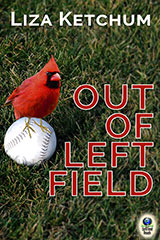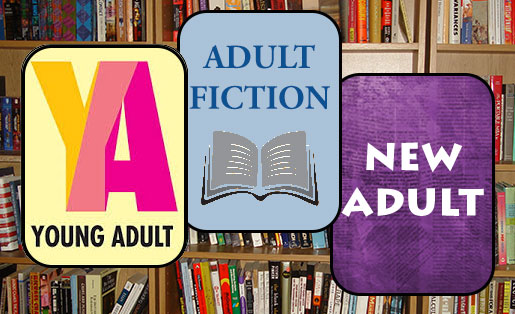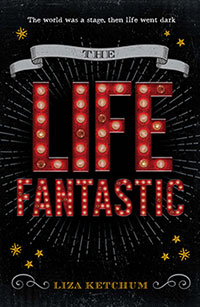 Over the past year, as books for young readers have attracted a wide audience, a spirited and sometimes heated discussion has taken place in blogs and other media, focused on who should read what. (The word “should” in relation to any book makes me queasy.) But I’ve thought about this issue a lot during readings and signings for my new novel, Out of Left Field. According to my publisher, it’s a book for young adult readers.
Over the past year, as books for young readers have attracted a wide audience, a spirited and sometimes heated discussion has taken place in blogs and other media, focused on who should read what. (The word “should” in relation to any book makes me queasy.) But I’ve thought about this issue a lot during readings and signings for my new novel, Out of Left Field. According to my publisher, it’s a book for young adult readers.
Or is it?
Soon after Out of Left Field was published, a friend approached me, book in hand. She had read the novel and enjoyed it, but wondered if the novel would be appropriate for her granddaughter. “How old is she?” I asked—assuming the child must be young.
“Thirteen,” she told me. She then added, sotto voce, “The book deals with some dark subjects. It seems very adult.”
Dark subjects? Okay: War and death; family secrets and the meaning of family—issues familiar to many young readers. Other themes include baseball, politics, and the importance of friendship. “Has your granddaughter read The Hunger Games or seen the movies?” I asked.
My friend admitted, with some embarrassment, that the child had, in fact, read the series and seen the film, so perhaps she could also handle my book. What I didn’t tell her was that, while writing the novel, I didn’t think about my audience. When I heard Brandon’s voice in my head and began to write his story, I knew he was about to turn eighteen. If this meant the book would be categorized as YA, fine.
But after it was published, I wondered if it would also appeal to a younger age group. In November, I spoke to a group of kids who were part of a parent/child book group at the Cambridge Public Library. Thanks to James Paterson’s grant to one of my favorite bookstores (Porter Square Books in Cambridge, Mass.) each family in the book group received a free copy of the novel a month in advance of our discussion.

I was touched and thrilled that the bookstore would use part of their grant this way. As the group assembled in a comfortable room decorated with images of Curious George, the librarian, Evan Sipe, passed out slices of pizza. Since younger siblings also attended, the group ranged in age from 9 to 13. Adults and children settled in to eat and talk.
Instead of the typical questions that come up on an author visit (Where do you get your ideas? How much money do you make?), these kids surprised me with the depth and breadth of their comments. After a few smart questions about the way I handled different points of view in the story, they launched into an energetic discussion about war and peace. They talked about whether we should reinstitute the draft and, if so, what would happen. “We wouldn’t have the war in Iraq,” one boy said. They argued about whether community service should be mandatory, and about our responsibilities overseas. “We shouldn’t have to fight someone else’s war for them,” another child said.
Though their parents had also read the book, their children initiated and maintained the discussion. Parents and children alike spoke of our current conflicts and the fact that tens of thousands of children across the country have faced loss or disruption due to our ongoing wars. The young readers were more than ready to take on the issues raised in the novel. Their insights were quite profound.
At the other end of the age spectrum, I spoke recently at a daylong conference on “What’s New in Children’s Books” put on by Wondermore (formerly The Foundation for Children’s Books) Participants included a number of librarians as well as other children’s book authors and illustrators. I gave them some background on my novel, including my own experiences with loss and political activity during the Vietnam War era and in the years that followed.
Afterward, many members of the audience—especially those who had lived through this era—came up to share private stories from that time period. I heard about husbands who managed to avoid the draft, about boyfriends who had left the country. One man admitted that he had lucked out in the lottery while his friend did not—with fatal consequences.
Just last week, a reading at a bookstore in Vermont prompted similar comments from adult friends who had vivid memories of that time. “This is really a novel for adults,” one man announced.
Yes—and no. I wish I had said then what I’m thinking now: there are no rules about who should read what. Is it time to throw away the labels on book jackets (YA, MG, etc.) that limit readership? Since we can’t predict how or why a story may capture a reader, no matter the age, we can only write the stories we need to tell.
(For further reading: See Anne Ursu’s insightful post, and Elizabeth Minkel’s “Read Whatever the Hell You Want” among others.)
 Please join us for a party to celebrate the release of The Life Fantastic: A Novel in Three Acts. The story takes place in 1913, at a time when vaudeville was America’s most popular form of entertainment. The book was inspired by a family story: Liza’s great-grandparents eloped and ran away to the vaudeville stage. In keeping with the vaudevillian backdrop of the book, the evening will include theatrical entertainment and music, as well as a reading and time for questions. The book has received kudos from teen readers as well as adults.
Please join us for a party to celebrate the release of The Life Fantastic: A Novel in Three Acts. The story takes place in 1913, at a time when vaudeville was America’s most popular form of entertainment. The book was inspired by a family story: Liza’s great-grandparents eloped and ran away to the vaudeville stage. In keeping with the vaudevillian backdrop of the book, the evening will include theatrical entertainment and music, as well as a reading and time for questions. The book has received kudos from teen readers as well as adults. 

